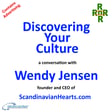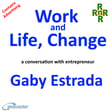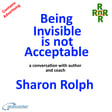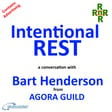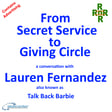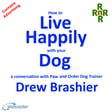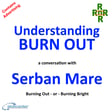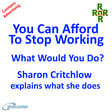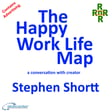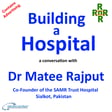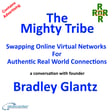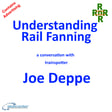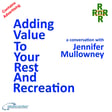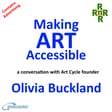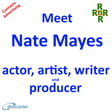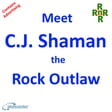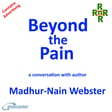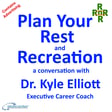
The Psychological Importance of Rest
Eloise Skinner is an entrepreneur, author and existential therapist. She is the founder of two businesses: One Typical Day (an ed-tech start-up), and The Purpose Workshop (a social impact consultancy).
In this episode, of Rest and Recreation Eloise explains the psychological importance of rest.
Eloise and host Michael Millward discuss how rest is not always doing nothing. Rest can involve doing something that is more about fulfilling a passion. Yet many people are only passionate about meeting a work deadline.
Real rest often requires us to detach ourselves from our work personality so that we can focus on who we really. To achieve this Eloise advocates for defining personal values and using these to define how we will live, and what we want to be passionate about.
Michael and Eloise also discuss her new book, But Are You Alive?
Buy books by Eloise Skinner at these retailers
Eloise is based in London, an expensive place to visit, which is why we use the Ultimate travel club, because ultimate travel club members buy at trade prices on flights and hotels, package deals and all sorts of other travel essentials.
Use our offer code ABEC79 to receive a discount on club membership fees.
The Independent Minds is Made on Zencastr, the all-in-one podcasting platform, on which you can create your podcast in one place and then distribute it to every platform. Zencastr really does make making content so easy.
If you would like to try podcasting using Zencastr visit zencastr.com/pricing and use our offer code ABECEDER.
Thank you to the team at Matchmaker.fm for introducing me to Eloise. If you are a podcaster looking for interesting guests or if like Eloise, you have something interesting to say Matchmaker.fm is where matches of great hosts and great guests are made. Use our offer code MILW10 for a discount on membership.
Visit Abeceder for more information about both Michael Millward, and Eloise Skinner.
Tech Problems?
If you are using your smartphone to listen to The Independent Minds and experienced connection problems, you would probably like to know that Three has the UK’s fastest 5G network with unlimited data, so listening on Three means that you can wave goodbye to buffering.
Visit Three for information about business and personal telecom solutions from Three, and the special offers available when you quote our referral code WPFNUQHU.
Being a Guest
If you would like to be a guest on The Independent Minds, please contact Abeceder.
We recommend that potential guests take one of the podcasting guest training programmes available from Work Place Learning Centre.
If you have liked this episode of The Independent Minds, please give it a like and download it so that you can listen any time anywhere.
To make sure you do not miss future editions please subscribe.
Remember, the aim of all the podcasts produced by Abeceder is not to tell you what to think, but we do hope to make you think!
Until the next time, thank you to you for listening.
